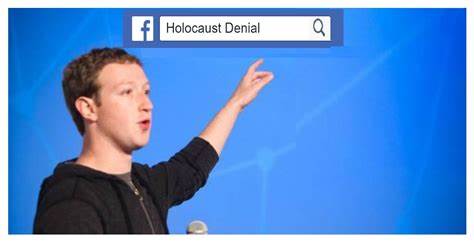It's too soon to say whether these changes will work, but TikTok has won cautious praise from some child safety advocates who say its challenges are similar to those facing other platforms,
現(xiàn)在來(lái)評(píng)論這些變化是否會(huì)奏效還為時(shí)過(guò)早,兒童安全倡導(dǎo)者一般不輕易表態(tài),但Tiktok的做法已經(jīng)贏得了他們中一些人的贊揚(yáng)。他們說(shuō),字節(jié)跳動(dòng)面臨的挑戰(zhàn)與其他平臺(tái)類似。
but that the stakes are higher because of its younger audience.
但其風(fēng)險(xiǎn)更高,因?yàn)樵摴镜氖鼙娙后w年齡較輕。
"Three years ago, we were having a really hard time trying to pin them down and get them to do the right thing," says Julie Inman Grant, commissioner of Australia's eSafety Office, a government agency.
澳大利亞政府機(jī)構(gòu)Esafety辦事處專員朱莉·英曼·格蘭特表示:“三年前,我們花了很大力氣強(qiáng)制用條例約束他們的經(jīng)營(yíng)行為,讓這些公司正確行事。”
"They're starting to be more responsible."
“他們開始更加負(fù)責(zé)了。”
Bytedance is aiming for more than mere social responsibility.
字節(jié)跳動(dòng)的目標(biāo)不僅僅是履行社會(huì)責(zé)任。
The company's long-term goal is to eliminate objectionable content entirely, to be "controversy free," as Tung, the investor, puts it.
正如投資人童士豪所說(shuō),公司的長(zhǎng)期目標(biāo)是徹底消除令人反感的視頻內(nèi)容,讓其“沒(méi)有爭(zhēng)議性”。
It's a uniquely Chinese censorship strategy—distinct from the hands-off approach of Bytedance's American counterparts, who tend to express support for almost unrestricted free speech.
這是一種獨(dú)特的中國(guó)式審查策略,不同于美國(guó)同行放手不管的做法,后者傾向于對(duì)幾乎不受限制的言論自由給予支持。
(Zuckerberg once famously said that Holocaust denial should be permitted on Facebook.)
(扎克伯格曾經(jīng)說(shuō)過(guò),臉書上應(yīng)該允許人們發(fā)布否認(rèn)大屠殺的言論。)
Last year, Zhang issued a public apology after media regulators shut down the jokes app for hosting vulgar content.
去年,在媒體監(jiān)管機(jī)構(gòu)關(guān)閉多個(gè)播放粗俗內(nèi)容的笑話應(yīng)用后,CEO張一鳴公開向公眾道歉。

The company hired thousands of people to police content, giving preference to Communist Party members, and invested more money in developing algorithms to screen posts.
該公司雇傭了數(shù)千人來(lái)管理平臺(tái)內(nèi)容,優(yōu)先考慮的是員工中的共產(chǎn)黨員,并投入更多資金開發(fā)用于篩選帖子的算法。
Today, Bytedance's AI screens videos as they're posted, automatically removing content without waiting for user complaints.
今天,字節(jié)跳動(dòng)的人工智能在發(fā)布視頻時(shí)會(huì)對(duì)內(nèi)容進(jìn)行篩選,在出現(xiàn)用戶投訴之前就能自動(dòng)刪除發(fā)帖。
The ambition, says Raj Mishra, TikTok's head of operations in India, is to be a "one-stop entertainment platform where people come to have fun rather than creating any political strife."
Tiktok的印度業(yè)務(wù)主管拉吉·米什拉說(shuō),他們的目標(biāo)是成為“一站式的娛樂(lè)平臺(tái),讓人們享受樂(lè)趣,而不是制造任何政治沖突”。
He makes no attempt to defer to the freedoms of speech and expression that are written into the constitution of the world's largest democracy.
他并未試圖遵守這個(gè)世界上最大的民主國(guó)家,其憲法中所要求的言論自由規(guī)定。
When asked if TikTok would allow criticism of, for example, Indian Prime Minister Narendra Modi, to be prominently featured in the app, Mishra answers, "No."
例如,當(dāng)被問(wèn)及Tiktok是否會(huì)把批評(píng)印度總理納倫德拉-莫迪(Narendra Modi)的內(nèi)容在應(yīng)用中著力渲染時(shí),米什拉回答說(shuō)“不會(huì)。”
In mid-April, Google and Apple app stores blocked new downloads of TikTok in India after a court asked the government to ban the app over concerns about pornography.
四月中旬,一家法院出于對(duì)色情內(nèi)容的擔(dān)憂,要求印度政府禁止Tiktok的使用后,谷歌和蘋果的應(yīng)用商店阻止用戶新下載該軟件。
Bytedance is fighting the action.
字節(jié)跳動(dòng)正在奮力反擊。












